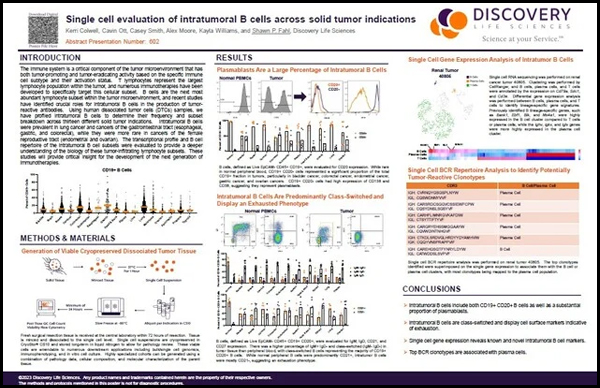
The immune system is a critical component of the tumor microenvironment that has both tumor-promoting and tumor-eradicating activity based on the specific immune cell subtype and their activation status.
T lymphocytes represent the largest lymphocyte population within the tumor, and numerous immunotherapies have been developed to specifically target this cellular subset. B cells are the next most abundant lymphocyte subset within the tumor microenvironment, and recent studies have identified crucial roles for intratumoral B cells in the production of tumor-reactive antibodies. Using human dissociated tumor cells (DTCs) samples, we have profiled intratumoral B cells to determine their frequency and subset breakdown across thirteen different solid tumor indications.
Intratumoral B cells were prevalent in lung cancer and cancers of the gastrointestinal tract (esophageal, gastric, and colorectal), while they were more rare in cancers of the female reproductive tract (endometrial and ovarian). The transcriptional profile and B cell repertoire of the intratumoral B cell subsets were evaluated to provide a deeper understanding of the biology of these tumor-infiltrating lymphocyte subsets.
These studies will provide critical insight for the development of the next generation of immunotherapies.
